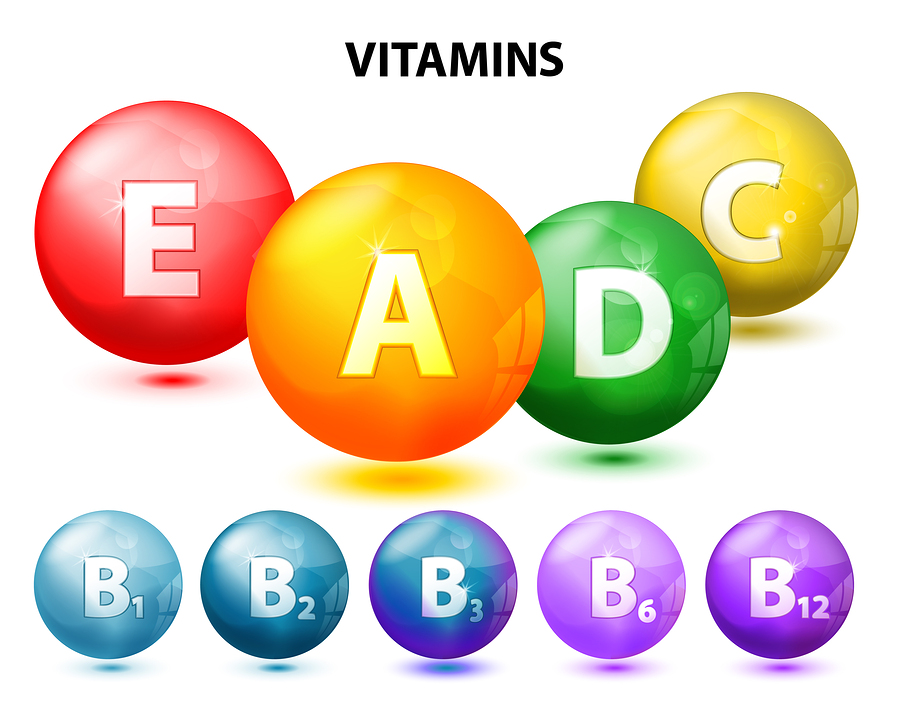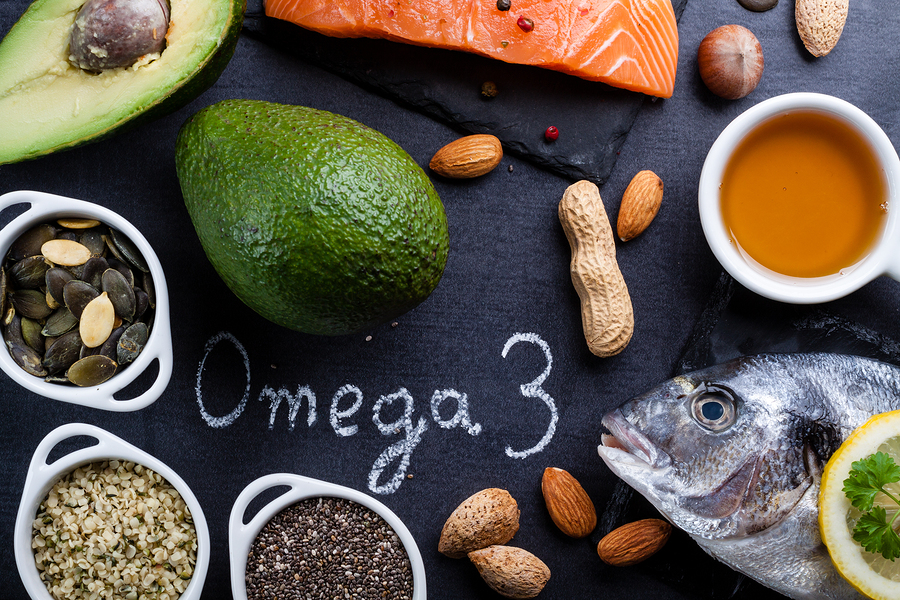- Make It Yourself Lavender Heart-Shaped Bath Bombs!
- 20 Things You Never Knew About “Down There”
- 12 Best Foods For Those Suffering From Arthritis Pain
- 12 Personal Hygiene Mistakes Almost Everyone Makes (Mom Never Told You About #4!)
- 15 Medicinal Plants And Herbs From The Cherokee People
- 12 Mind-Blowing Benefits Of Drinking Coconut Water During Pregnancy
- 12 Outstanding Winter Foods That Won’t Fatten You Up Like A Christmas Turkey
Check On These 8 Nutrients Vital For The Perfect Function Of The Nervous System
The brain is arguably the most important part of our bodies – and the nervous system that extends from our brains is in constant need of a supply of nutrients and vitamins to run properly. Most of the time, our bodies are aptly supplied from the food that we eat and there’s no need for supplements. But if you’re finding that you’re having a hard time concentrating, focusing, experiencing headaches, being forgetful, or having other nervous system issues, you might be deficient in one of the vitamins your nervous system needs to function.
In fact, some estimates say that 70% of the population is deficient in one of the important minerals that our nervous system needs! Deficiencies in some of the below minerals of vitamins can cause serious side effects such as nausea, epilepsy, unsteady walking, vision problems, and muscle weakness. Take a look at the vitamins and minerals that we all need for our nervous systems to function in peak condition.
1. Potassium
Potassium helps to regulate nerve impulses in the nervous system. In particular, potassium works to help transmit the electrochemical impulses throughout each cell. Potassium is also important to help turn off the nerve impulses when appropriate which helps to prevent uncontrolled signaling which can lead to diseases such as epilepsy. You can find potassium in many common foods including bananas, oranges, cantaloupe, prunes, dates, raisins, cooked spinach and broccoli, potatoes and mushrooms.
2. Calcium
Calcium works to help start the action potential in nervous cells and also helps to return them to their normal state once the action is complete. Calcium also helps to guide the nervous system as it develops, providing a sort of map for where each cell needs to go. Calcium deficiencies can lead to numbness or tingling, muscle cramps, fainting, difficulty swallowing, and a poor appetite. Lots of foods contain calcium including dairy products, kale, beans, almonds, okra, oranges, broccoli, Chinese cabbage, and sesame seeds.
3. Magnesium
Magnesium is the one mineral that many people, up to 70% of the population, is deficient in. Magnesium helps to convert sugars into energy and since the brain uses only glucose to work on, magnesium is very important in keeping the brain satisfied with enough energy. But the brain is not the only part of the body that uses magnesium – being deficient in magnesium can also lead to diabetes and low energy as your body doesn’t convert sugar into energy in the body. Foods high in magnesium include dark chocolate, avocados, nuts, legumes, tofu, seeds, and whole grains.
Continue to Page 2
4. Omega-3s
The brain is nearly half comprised of fats and they are helpful in creating neural connections in the brain when it is developing, and even later in life, as it helps to create the barrier that keeps nerves protected. Deficiencies in Omega-3s can lower a person’s IQ points by as many as 30 points which can cross the line between normal IQ and mentally disabled. This fat barrier can also help to prevent dementia-like diseases later in life. Foods high in Omega-3s include walnuts, chia seeds, wild rice, salmon, eggs, and soybeans.
5. Vitamin D
Vitamin D might be one of the easiest of these supplements to have in abundance in our bodies – a mere 20 minutes of sunlight a day will give your body the necessary amount of Vitamin D. Vitamin D helps to turn the neurotransmitter creation on and off and works with the nerve growth systems. When Vitamin D is low in the body, the ability to form new connections and keep old ones is inhibited – one reason that Vitamin D supplements have been shown to be helpful in those with dementia or Alzheimer’s. Foods high in Vitamin D include mushrooms, fatty fish, and eggs. Although most think that dairy is high in Vitamin D and a good source of it, recent studies have been showing that the added Vitamin D in milk might lead to more complications than solutions, so keep this in mind.
6. Vitamin E
Vitamin E is essential to the brain because it acts as a potent anti-oxidant. With the amount of reactions going on in the brain, Vitamin E is essential to keep the nervous system as free of free radicals as possible. Some research shows that Vitamin E can even help to reduce stress on the brain which will help the brain by making it able to think clearer. Vitamin E is available in a number of foods including eggs, nuts, avocado, seeds, leafy greens and sweet potatoes. Many people on low-fat diets are deficient in Vitamin E and the deficiency can correlate to an increased risk of Alzheimer’s.
Continue to Page 3
7. Vitamin C
Another powerful anti-oxidant, vitamin C can also help reduce the risk of stroke as it is also a regulator for many different neurochemicals. Symptoms of vitamin C deficiency include easy bleeding, dry skin, easy bruising, and decreased wound-healing rate. Foods high in vitamin C include oranges, cantaloupe, kiwi, mangoes, tomatoes, pineapple and strawberries.
8. Vitamin B’s: 1, 2, 6, 9, 12
Vitamin B12 is one of the most important vitamins in creating the myelin sheath that covers the nerves and keeps them protected. A deficiency in this protein can lead to pain and neuropathy and is one of the main reasons that vegans and vegetarians get sick if they don’t take supplements. Our bodies expel any extra B12 vitamin that we ingest. Foods that are high in vitamin B12 include eggs, dairy products, meat, and some soy and rice products fortified with vitamin B12.
The other B vitamins may not be quite as important as B12, but they still all play their roles. B2 helps to properly transmit nerve impulses and a deficiency can lead to migraines and other dementia problems. Vitamin B9, folate, helps to protect the brain from heavy working and stresses and the elderly and pregnant women can be deficient. Foods that contain the B vitamins include liver, eggs, fish, cheese, leafy greens, broccoli, avocado, lentils and bananas.
READ ALSO: Yoga To Calm Your Nerves And Get Back On Track Video
All of these vitamins and minerals are essential to keeping the nervous system running in tip-top shape and in deterring the onset of degenerative diseases such as Alzheimer’s. Make sure to keep your diet balanced and take in all of these foods so that you don’t develop any symptoms related to these vitamin deficiencies. Supplements are also a good idea if you think that you are not getting the vitamins necessary in the food you’re eating. Keeping your nervous system and brain in good health is important not only for your mental well-being but for your overall well-being too.
References:



































